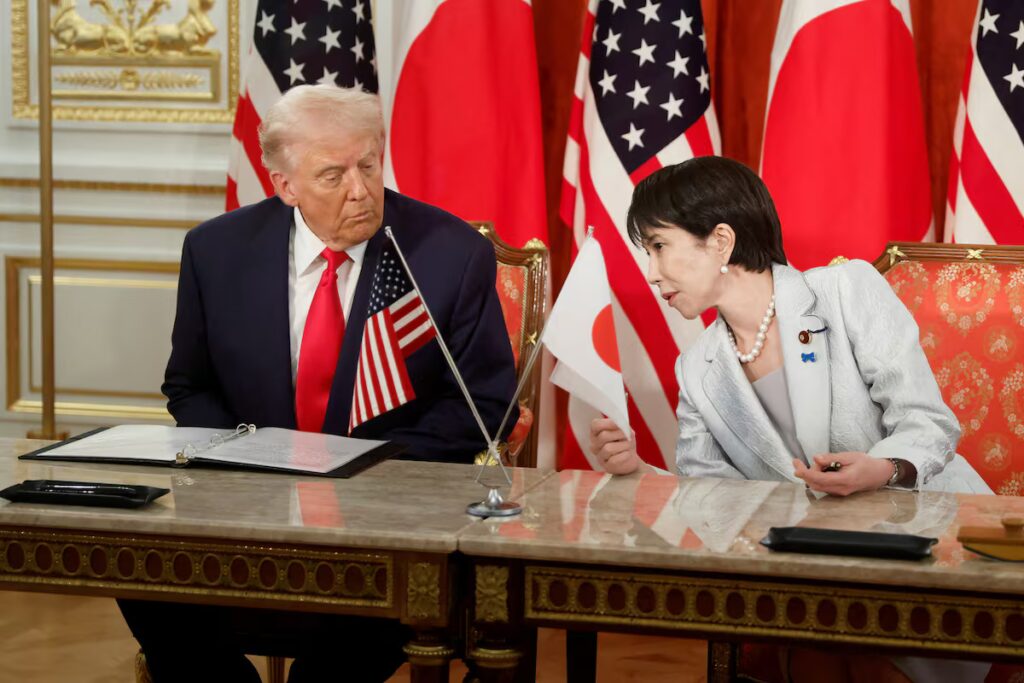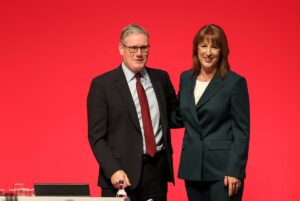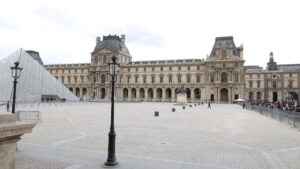
Japan, the only nation in the world whose population was attacked with an atomic bomb, has reopened the debate over its anti-nuclear policy. The new prime minister, the ultra-conservative Sanae Takaichi, is considering the possibility of revising the anti-nuclear principles, in a measure that would represent a decisive turning point in Japan’s security policy. The change would also have potential effects on the Asia-Pacific region at a time when diplomatic tension with China continues to rise over Takaichi’s comments on Taiwan.
Given the escalation between Tokyo and Beijing, Donald Trump, president of the United States, Japan’s main ally, had a telephone conversation with Takaichi on Tuesday evening, a few hours after Chinese leader Xi Jinping discussed the future of Taiwan with the tycoon in another phone call.
And in the midst of all this geopolitical tussle: the revision of the nuclear debate. Last week, the ruling Liberal Democratic Party (LDP) began internal negotiations on key defense documents, including the National Security Strategy. This review is expected to address rising military spending above 2% of GDP, which worries China. According to government sources cited by local media, during the deliberations it will also be discussed whether or not it is appropriate to maintain the so-called “three nos”, the trio of principles engraved in the Japanese anti-nuclear doctrine: not to possess, not to produce and not to allow atomic weapons in Japan.
Takaichi, a hardline lawmaker who took over Japan’s leadership about a month ago, had already announced in her first week that she would speed up the military budget increase. And he has previously suggested the need to reexamine the atomic doctrine. The prime minister fears that the third principle, which limits the entry of nuclear weapons onto Japanese soil, weakens the effectiveness of the deterrent provided by the US nuclear umbrella, according to government sources cited by Japan’s Kyodo agency.
The party plans to come up with a set of proposals by the end of April, Itsunori Onodera, director of the LDP’s security inquiry commission, said last week. By the end of 2026, the Government is expected to review the long-term policy orientations of the National Security Strategy and two other documents, the latest reform of which dates back to 2022.
The debate also comes in the year in which the 80th anniversary of the bombings of Hiroshima and Nagasaki, on August 6 and 9, 1945, in which more than 200,000 people died. The anniversary was useful because numerous pressure groups and the ever decreasing number of victims of the bombings still alive are calling for a more decisive step towards non-proliferation.
The victims, against
The initiative of the new Takaichi government also provoked an energetic protest from Nihon Hidankyo, the main group of survivors of the explosions that ended the Second World War. This organization, awarded the Nobel Peace Prize in 2024, released a statement last week criticizing the prime minister’s intentions, saying that measures to abolish nuclear weapons should not be delayed. Survivors “cannot allow nuclear weapons to be introduced into Japan, nor for the country to become a base for nuclear war or a target for nuclear attacks,” they said. The group urged the government to uphold the three anti-nuclear principles and pass them into law.
Meanwhile, Japan believes the security environment in the region is becoming increasingly complex and sees the upgrade as a necessary step as the maritime assertiveness of China, which just launched its third aircraft carrier, grows and North Korea’s nuclear and missile development continues.
Takaichi is also inclined to reduce restrictions on the Japanese army, a reflection of the pacifist Constitution born from the ashes of the Second World War: his armed forces are prohibited from intervening in international conflicts unless it is a “survival crisis situation” for Japan. This limitation contained in the Magna Carta is precisely at the origin of the current dispute with China.
At the beginning of November, in parliament, the chief executive assured that a possible attempt by China to block or seize Taiwan could represent “an existential threat” to his country, which would justify the deployment of the Japanese Self-Defense Forces. Beijing, which considers the self-ruled island a rebellious province and therefore an internal matter, was furious.
For two weeks the brawl has been burning diplomatic relations between neighboring countries and putting a strain on the atmosphere even at city level. The People’s Republic requests a rectification. Meanwhile, Takaichi assures that his words do not represent a departure from the government’s previous position, and he does not back down.
With tension at its highest level, late on Monday evening, Taiwan became the protagonist of a telephone conversation between Trump and Xi. The Chinese leader communicated to his American counterpart that “the return of Taiwan to China is an integral part of the post-war international order”; The Republican, according to the official Chinese readout, responded that the United States “understands the importance of the Taiwan issue to China.”
Shortly afterward, Trump picked up the phone again, this time to talk to Takaichi, the Japanese prime minister said Tuesday. The phone call was requested by the American, in which she informed her of the content of her conversation with Xi, according to the president, who however refrained from providing too many details.
The conversation revolved around strengthening the alliance between Japan and the United States, as well as various challenges facing the region, Takaichi said, according to Fuji News Network. “During the conversation, President Trump explained the current state of US-China relations, including the call held last night,” he added.
“I believe we were able to confirm the close cooperation between Japan and the United States, following President Trump’s recent visit to Japan, under the current international circumstances.” She added that the American told her that he considers her a “very good friend” and that she “would not hesitate to call him at any time”.
Ken Ishida, a professor at Chiba University’s School of Law and Economics, believes that Takaichi appears to be following the policy of “collective self-defense” of the slain former Prime Minister Shinzo Abe, of whom the current president considers himself a disciple. It was he who promoted the constitutional reinterpretation during his second term (2012-2020) to allow the country to use force to defend an ally from attack. Takaichi took this vision one step further.
“Much more dangerous”
“Previous Japanese governments, including Abe, had not officially announced that they would protect Taiwan’s independence as it is an internal matter of China. However, Takaichi took a risk by claiming that the Taiwan issue is related to Japan’s collective self-defense. This is much more dangerous than changing the principles of the three no’s at this time.” Ishida also warns against other changes to which Tokyo has opened the door, such as arms exports, imposed by the government’s pacts with minority parties.
But none of this seems to affect Takaichi negatively. By contrast, the approval rating of the Japanese prime minister’s cabinet rose to 69.9%, more than five points above the results achieved shortly after his inauguration, according to a poll released Sunday by Kyodo.





